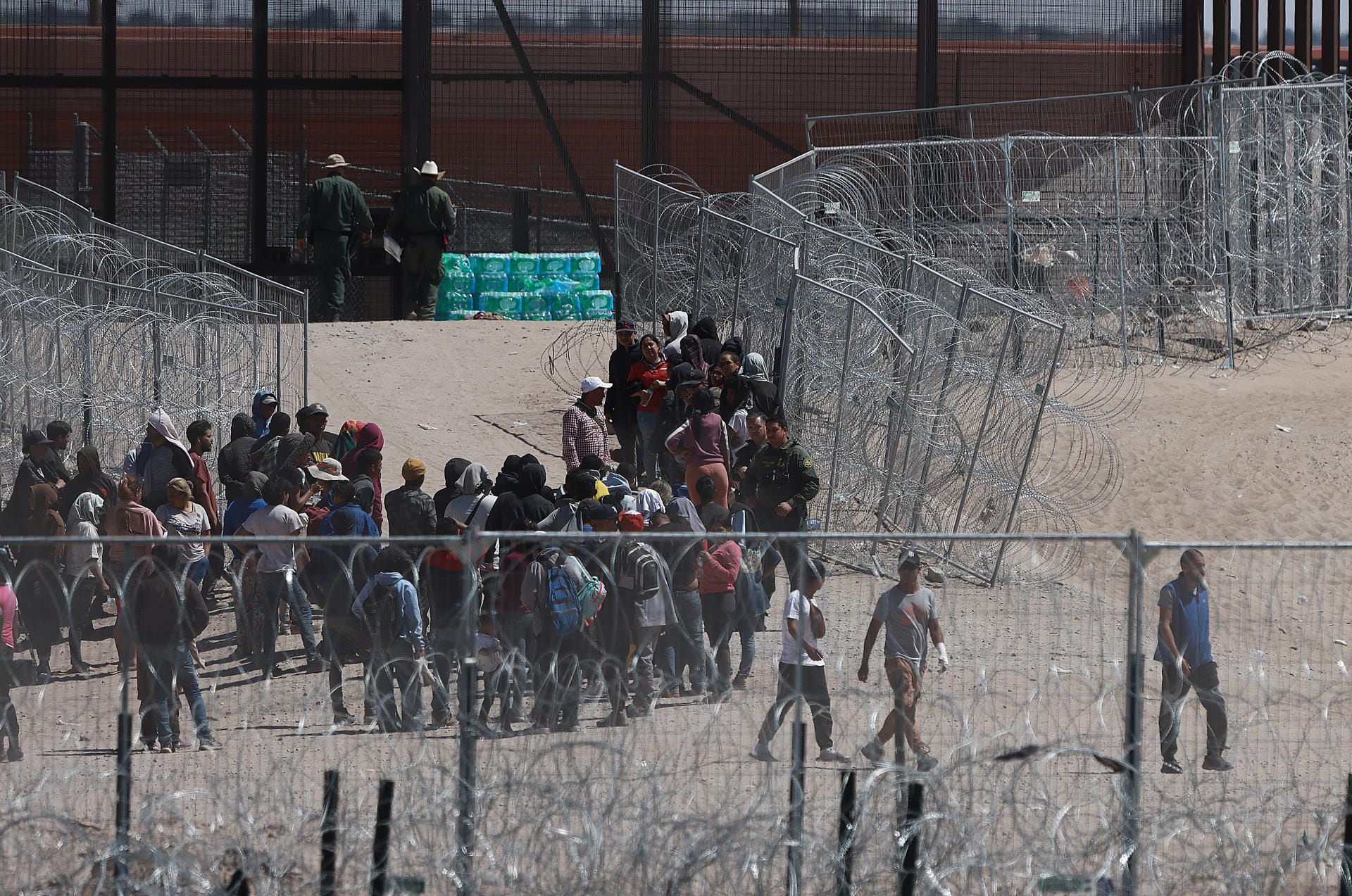
As the 2024 US presidential election approaches, recent polls reveal two significant trends. First, former President Donald Trump maintains a national lead over President Joe Biden. Second, migration emerges as a crucial concern for 50 percent of American voters, reflecting a political dynamic that goes beyond borders and will have significant repercussions on both sides of the divide.
The Political Context in the United States:
In the race to the White House, migration has become a central issue on the electoral agenda, fueling both political discourse and public perception. The Biden administration has faced both internal and external criticism for its handling of migration, with critics pointing to the influx of migrants at the southern border and the government’s alleged inability to control the situation.
Concern about migration and border security has not only fueled the Republican narrative, but has also influenced Biden’s approval on economic issues. Illegal immigration and the perception of lax border control have reinforced the Republican narrative, strengthening support for Trump in key states and fueling dissatisfaction among independent voters.
The electoral college system, which assigns delegates to each state based on the popular vote, turns some undecided states into fertile ground to tip the balance in favor of one candidate or another. The states of Michigan, Pennsylvania and Wisconsin, crucial in the 2020 election, now show a technical tie between Biden and Trump, reflecting the delicate political situation and the importance of migration in voters’ decision-making.
Migration as a Crossroads:
Migration in its current dimension is not only a national problem, but also an international one, which influences bilateral relations between Mexico and the United States. Migration management is a crossroads that will define the US elections and set the course for the immigration policies of both countries.
In the United States, the challenge is to find a balance between border security and the human rights of migrants. The Biden administration’s recent actions and proposed new measures to manage migration reflect the effort to find that balance. However, the narrative of the immigration crisis has strengthened Trump’s position and influenced the perception of Biden’s presidency.
The Challenge for Mexico:
On the Mexican side, the situation poses a significant political challenge. The US election will influence the bilateral relationship and Mexico’s position in the immigration context. Mexico’s next presidency will face its first major crisis in migration management, defined by the relationship with its northern counterpart.
The key decision for Mexican leadership will be whether to continue playing an instrumental role in migration management or adopt a more autonomous stance. The election of Biden or Trump will have direct repercussions on this decision, as it will determine the direction of US immigration policy and the bilateral relationship with Mexico.
Ultimately, the migration crisis and the US elections are intrinsically linked, defining not only the fate of the White House, but also that of the bilateral relationship between Mexico and the United States. Effective migration management will require a comprehensive approach, balancing border security, migrant human rights and international cooperation.
Will the third presidential debate be the occasion to frankly and directly address the immigration crisis and the real conflict facing the United States and Mexico?
